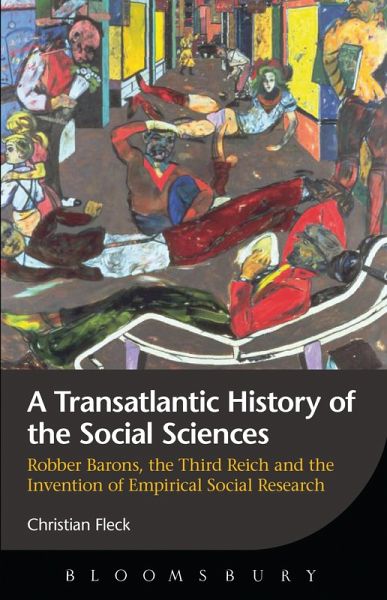
A Transatlantic History of the Social Sciences (eBook, ePUB)
Robber Barons, the Third Reich and the Invention of Empirical Social Research

PAYBACK Punkte
31 °P sammeln!
This book is available as open access through the Bloomsbury Open Access programme and is available on www.bloomsburycollections.com. From the beginning of the twentieth century, scientific and social scientific research has been characterised by intellectual exchange between Europe and the US. The establishment of the Third Reich ensured that, from the German speaking world, at least, this became a one-way traffic. In this book Christian Fleck explores the invention of empirical social research, which by 1950 had become the binding norm of international scholarship, and he analyses the contri...
This book is available as open access through the Bloomsbury Open Access programme and is available on www.bloomsburycollections.com. From the beginning of the twentieth century, scientific and social scientific research has been characterised by intellectual exchange between Europe and the US. The establishment of the Third Reich ensured that, from the German speaking world, at least, this became a one-way traffic. In this book Christian Fleck explores the invention of empirical social research, which by 1950 had become the binding norm of international scholarship, and he analyses the contribution of German refugee social scientists to its establishment. The major names are here, from Adorno and Horkheimer to Hirshman and Lazarsfeld, but at the heart of the book is a unique collective biography based on original data from more than 800 German-speaking social scientists. Published in German in 2008 to great acclaim, Fleck's important study of the transatlantic enrichment of the social sciences is now available in a revised English-language edition.













